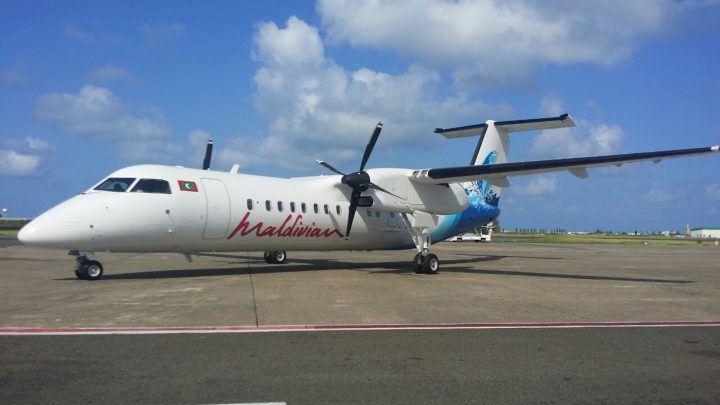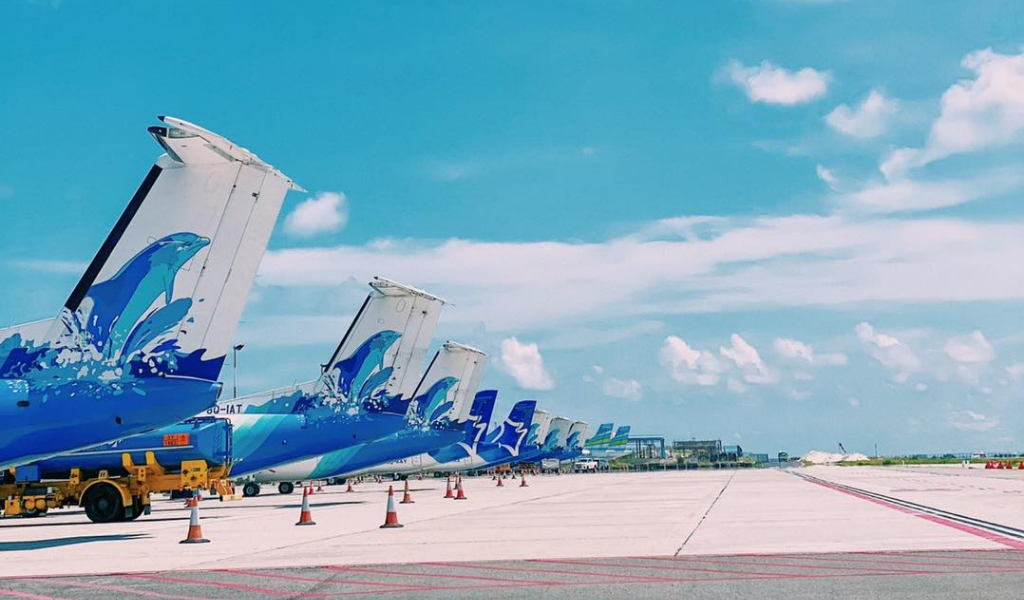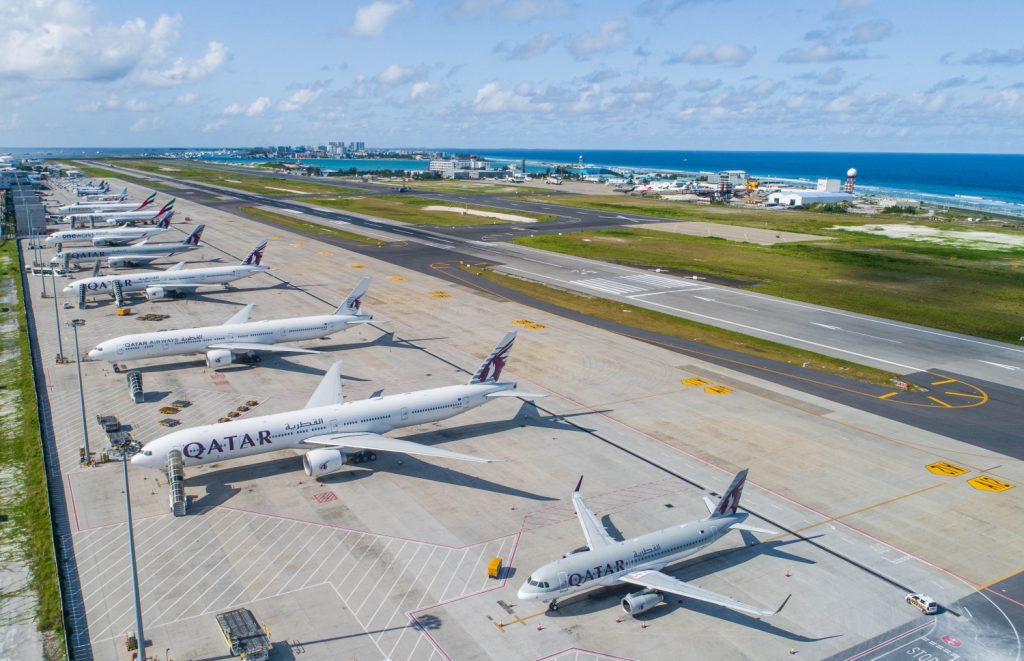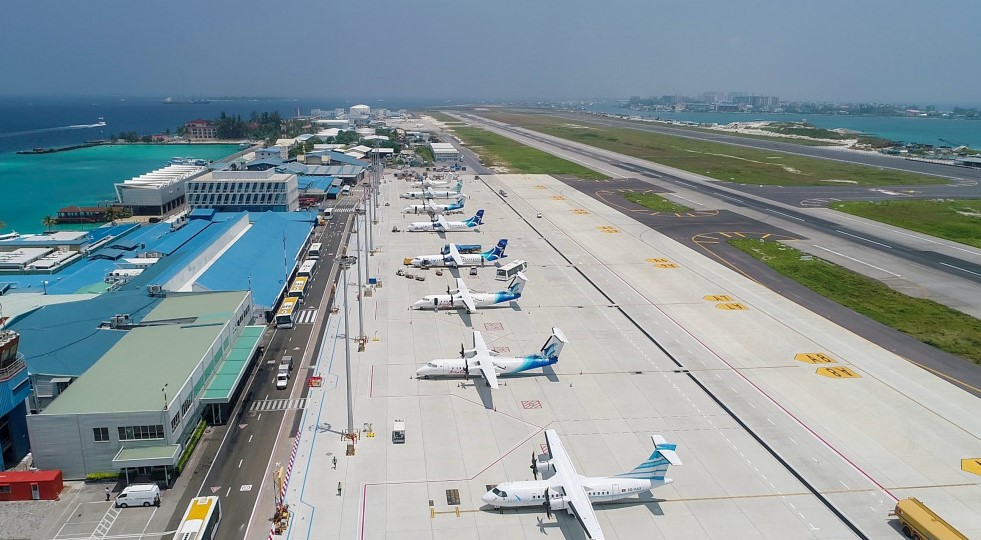
Struggles of Maldivian airline: Time to let private airlines soar?
As the flag carrier and national airline of the Maldives, Maldivian has long been a symbol of national pride, connecting the scattered islands of the archipelago and serving as a gateway to the world. However, beneath the surface of this emblematic role lies a harsh reality: Maldivian has consistently struggled to operate profitably, raising questions about its sustainability and the need for a shift in the country’s aviation policy.
Maldivian, operated by Island Aviation Services Limited (IASL), has been in operation since 2000, initially providing domestic flights before expanding to international routes. Despite its expansion, the airline has faced mounting financial challenges. According to a report by the Maldives Auditor-General, the airline owed the Maldives Airports Company (MACL) MVR 351.6 million (USD 22.8 million) in unpaid fees as of December 31, 2021. This debt, accumulated over several years, highlights the ongoing financial instability of the airline. The bulk of this debt was incurred during the COVID-19 pandemic, a period that severely impacted global aviation.
Despite a brief period of profitability in early 2023, where Maldivian posted a net profit of MVR 10.74 million, the airline’s financial health remains precarious. The company’s quick ratio, cash ratio, and current ratio all indicate a fragile financial state, with significant outstanding debts and reliance on government subsidies. Critics argue that these subsidies allow Maldivian to offer airfares at rates that are not sustainable without government support, thereby distorting the market and stifling competition. These issues stem from various factors, including the high operational costs associated with serving the dispersed islands of the Maldives, stiff competition from other airlines, and the financial burden of maintaining an aging fleet.
An aviation specialist, who has closely studied the Maldivian aviation sector but wishes to remain anonymous, explains, “The Maldivian airline market is unique due to its geography, but that uniqueness comes with significant costs. The operational expenses are high, and the demand, while steady, is not enough to offset these costs. This makes it difficult for a state-owned entity like Maldivian to operate profitably, especially when competing with private airlines that can be more flexible and cost-efficient.”
One of the key reasons Maldivian has managed to continue operations despite its financial losses is government subsidies. These subsidies are intended to ensure connectivity between the islands and to maintain a national airline that reflects the country’s sovereignty. However, the reliance on these subsidies has led to a debate about whether it is sustainable for the government to continue pouring money into an unprofitable venture.
An economist specialising in the Maldives notes, “Subsidies are a double-edged sword. On one hand, they help maintain services that are crucial for the nation. On the other hand, they can create a dependency that discourages efficiency and innovation. In the case of Maldivian, these subsidies are propping up an airline that, under normal market conditions, would need to drastically change its operations to survive.”

There is also an argument that a national carrier can justify running at a loss if it contributes significantly to the overall economy. By bringing more tourists into the country who then spend on hotels, resorts, and other sectors, the economy as a whole could profit. Moreover, having a national airline gives the government some leverage in regulating what foreign airlines charge for routes to the Maldives, which could increase overall demand for the destination. However, using these subsidies to drive out competition by cutting private operators’ throats is destructive. If private domestic airlines were allowed to turn a decent profit, they could expand operations, invest in better services, and offer more competitive salaries to staff, which would ultimately benefit the entire industry.
One of the critical challenges facing Maldivian is its limited reach to destinations that significantly contribute to the Maldives’ tourism sector, particularly in Europe. Despite being the national airline, Maldivian has been unable to establish routes to any European cities, which are vital sources of inbound tourism. This limitation is a significant disadvantage in a country where tourism accounts for a large portion of the GDP.
The aviation specialist points out, “The inability of Maldivian to connect directly to key markets in Europe means that the airline is missing out on a substantial revenue stream. European tourists, who make up a large percentage of visitors to the Maldives, often have to rely on other carriers to reach the country. This not only impacts Maldivian’s profitability but also diminishes its role as a national carrier in promoting the Maldives abroad.”
In the absence of direct flights from Maldivian, regional airlines like those from neighbouring countries have capitalised on the opportunity. These airlines offer convenient connections to the Maldives from various parts of Europe and Asia, effectively filling the gap left by Maldivian. Some regional airlines have established themselves as key players in bringing tourists to the Maldives, often offering competitive prices and attractive packages that include seamless connections through their home hubs.
The economist notes, “Regional airlines are stepping in where Maldivian cannot. They are not only capturing a significant share of the market but are also enhancing their brand presence in key tourism markets. This is something that Maldivian, as the national carrier, should be leading but has so far failed to do.”

This reliance on foreign carriers to bring tourists to the Maldives underscores the missed opportunities for Maldivian. If the airline could establish itself in these crucial markets, it would not only boost its revenues but also strengthen its position as a carrier that truly represents the Maldives on the global stage. However, without the capability to do so, Maldivian continues to struggle, while regional competitors benefit from the increasing demand for travel to the Maldives.
Additionally, the presence of a heavily subsidised national airline has implications for private carriers in the Maldives. Private airlines often find themselves at a disadvantage when competing against a state-backed entity. This has led to a stifling of competition, which could otherwise lead to better services and more competitive pricing for consumers.
The aviation specialist adds, “Private airlines in the Maldives have the potential to thrive, but they face significant challenges due to the dominance of Maldivian. If the government were to create a more level playing field, we could see a surge in private sector innovation and investment, which would ultimately benefit consumers and the economy as a whole.”
There is also a case for providing local airlines incentives to fly to certain domestic airports, instead of heavily subsidising Maldivian to operate all domestic routes. If other domestic airlines were given such incentives, the overall cost to passengers would likely decrease, and customer service would improve as airlines compete to provide a better experience. A competitive environment could also lead to more efficient operations and expanded services.
Given the ongoing financial struggles of Maldivian and the potential benefits of allowing private airlines to flourish, there is a growing call for the government to reconsider its aviation policy. This would involve reducing or eliminating subsidies for Maldivian, encouraging private investment in the aviation sector, and creating a regulatory environment that promotes fair competition.
The economist suggests, “The government needs to rethink its approach. Instead of focusing on maintaining a national airline at any cost, the focus should be on ensuring that the aviation sector as a whole is healthy and competitive. This might mean letting go of Maldivian or significantly restructuring it to operate on a more commercial basis.”

A more liberalised aviation sector in the Maldives could have several benefits. First and foremost, it could lead to better services and more options for travellers. Private airlines, driven by profit motives, are more likely to innovate and improve their services to attract customers. This could result in more frequent flights, better connectivity, and enhanced in-flight experiences.
Secondly, a competitive aviation market could lead to lower prices. Without the burden of maintaining an unprofitable national carrier, the government could redirect resources to other critical areas, while consumers would benefit from the lower prices that typically result from healthy competition.
Lastly, a thriving private aviation sector could contribute to the overall economy by creating jobs, attracting investment, and boosting tourism. The Maldives, with its dependence on tourism, would benefit greatly from a robust and efficient aviation sector that can meet the demands of both domestic and international travellers.
The challenges facing Maldivian are not unique to the Maldives. Many national airlines around the world have struggled to remain profitable in the face of rising costs and competition. However, the solution may not lie in continuing to subsidise an unsustainable operation. Instead, the government should consider opening up the market to private airlines, which have the potential to bring about the necessary innovation and efficiency.
As the aviation specialist concludes, “The Maldives has a unique opportunity to redefine its aviation sector. By allowing private airlines to compete on a level playing field, the country can ensure that its connectivity needs are met in a sustainable and economically viable way.”
The time has come for the Maldivian government to make a difficult but necessary decision. By reducing its involvement in the airline industry and allowing the private sector to take the lead, the Maldives can create a more dynamic and competitive aviation market that benefits everyone.






